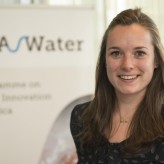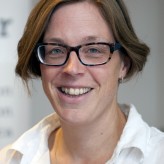Gaming hub launched in Kenya to develop local startups
By Tom Jackson

Various partners including VIA Water and iHub have launched the Chezo Serious Gaming Hub in Nairobi, aimed at realising the untapped potential of serious gaming in Kenya.
The Chezo Serious Gaming Hub, backed by VIA Water, has been formed by a consortium that brings together experienced serious gaming experts from the Netherlands and Kenya. Other partners include iHub, Upande, Deltares, FloodCom and The Barn, with the Gaming Hub launched in a bid to develop an industry of serious gaming in Kenya, focusing particularly on urban water-related issues.
It is the first initiative of its kind in Kenya and aims to inspire, train and incubate local entrepreneurs to assist them in launching new business ventures ready to tackle real life, urban water issues in new and compelling ways. Training materials developed will be freely available after the project in order to continue to inspire others beyond the project’s lifespan. “Using games to educate and teach is a long standing tradition in Africa. Think of the famous and, probably, the oldest “Mancala” game – also known as “the sowing game” – used to teach agriculture and problem solving. Games form an integral part of African tradition,” the partners said.
“Kenya boasts a rich and vibrant technology scene and an entrepreneurship ecosystem that has in recent years received worldwide attention for churning out ingenious innovations. Despite this, serious gaming is still nascent and untapped, as is the case globally. ”The Chezo Serious Gaming Hub looks to change that, with the various partners providing pro-bono training, mentorship and other support to aspiring game developers. Workshops will begin next month, culminating in a “game jam” to select winners to proceed to the second stage.
These winners will receive additional support from consortium partners to further develop and launch their innovations, with this collaborative, mostly virtual stage taking up to four months. Three overall winning teams will then be selected to receive further mentorship and other support from consortium partners, with cash grants of up to EUR 2,000 (US$2,200) also awarded to the most promising teams.
Up to 30 people will be selected to participate in the programme, with applications open here.

